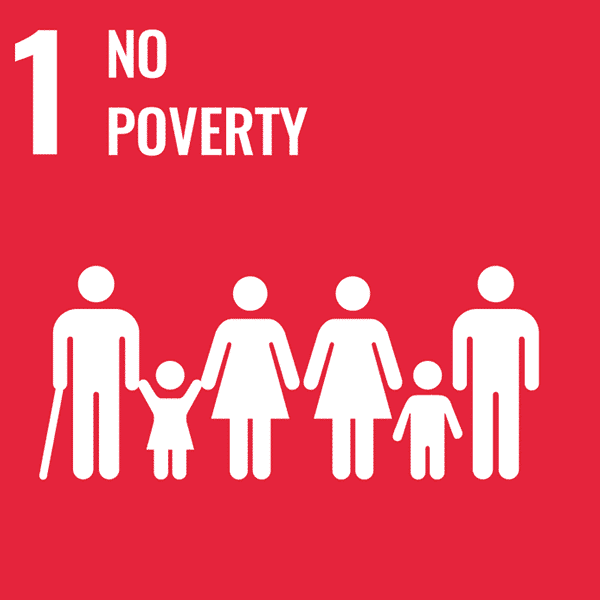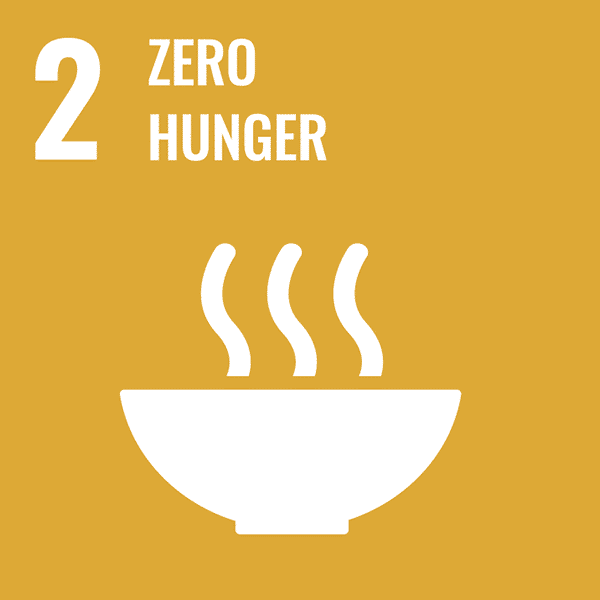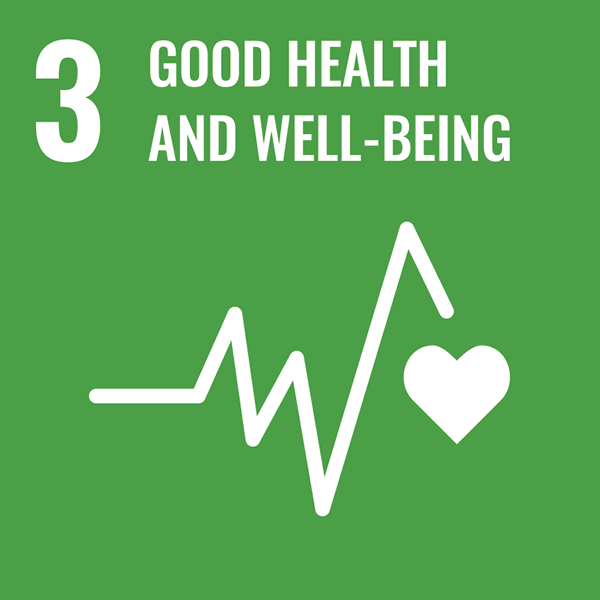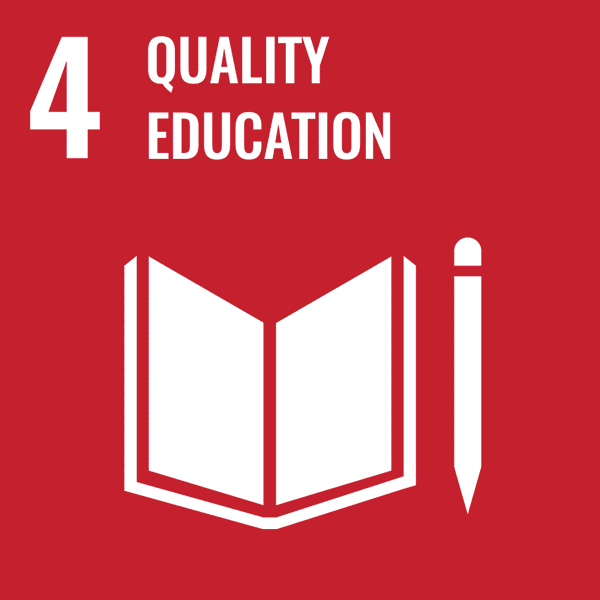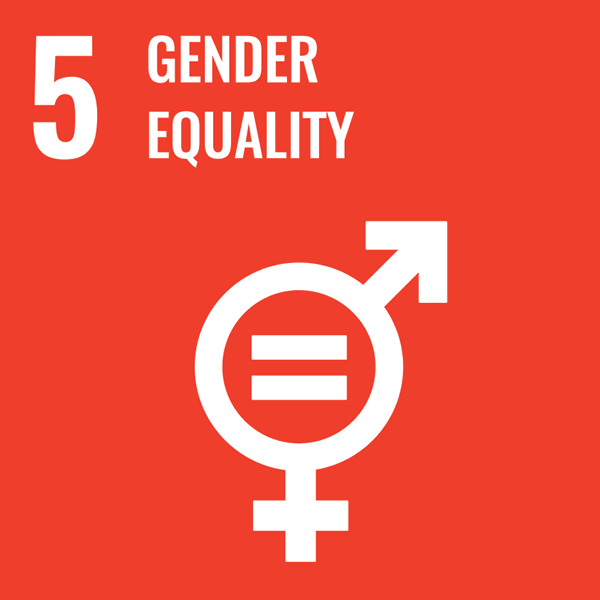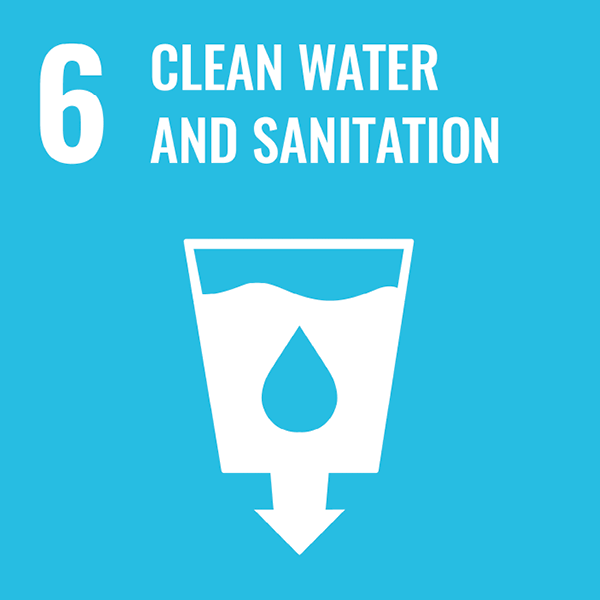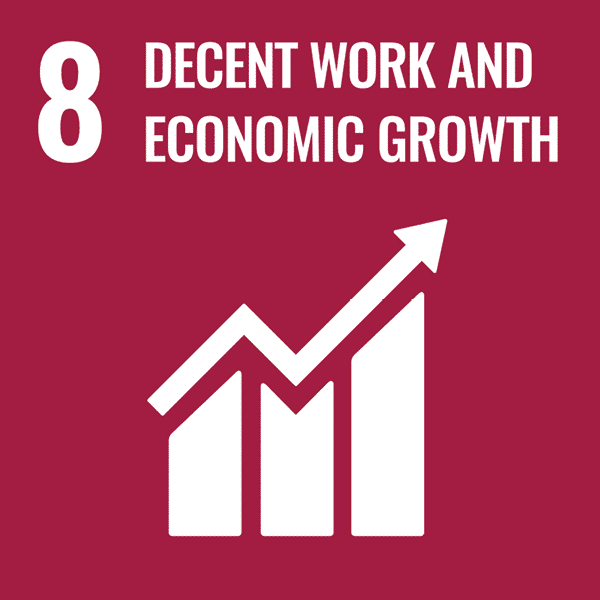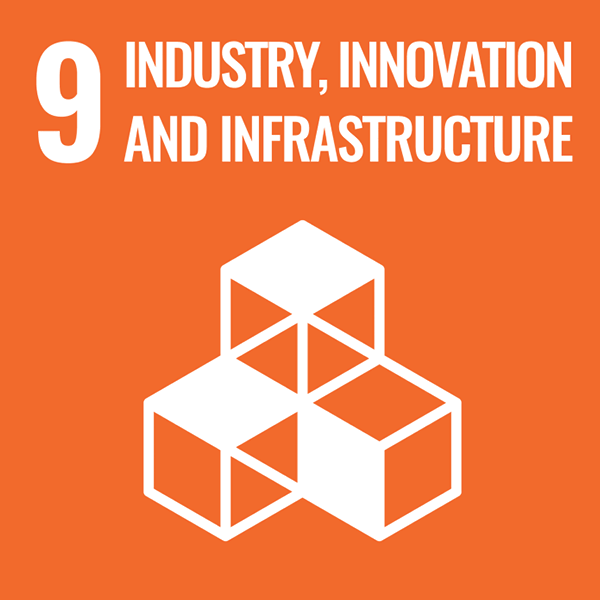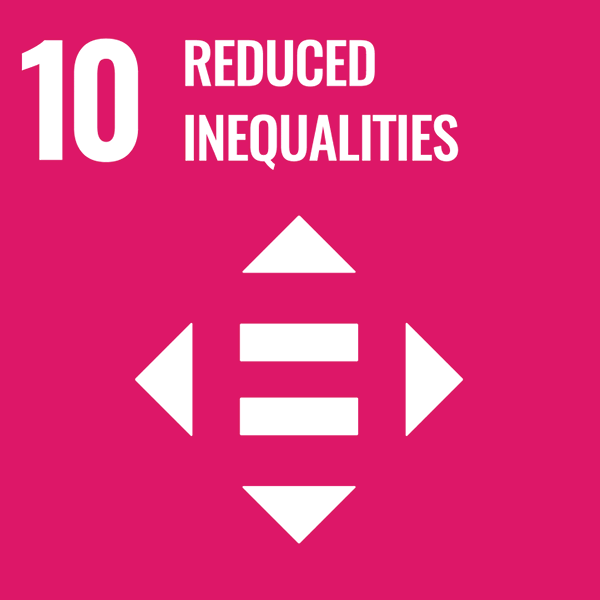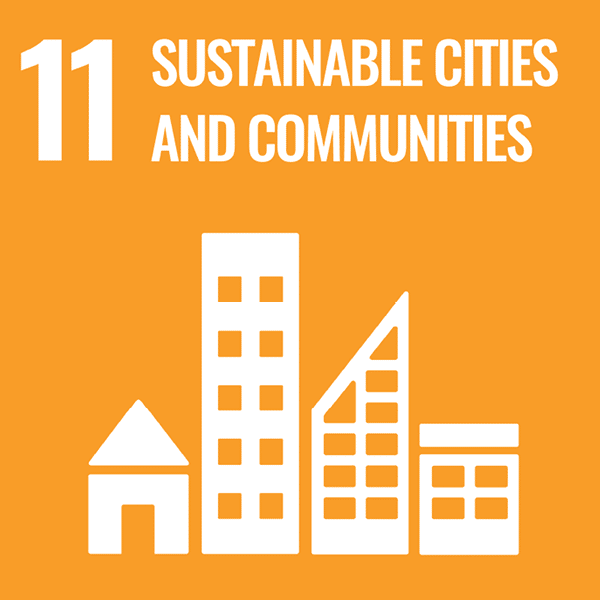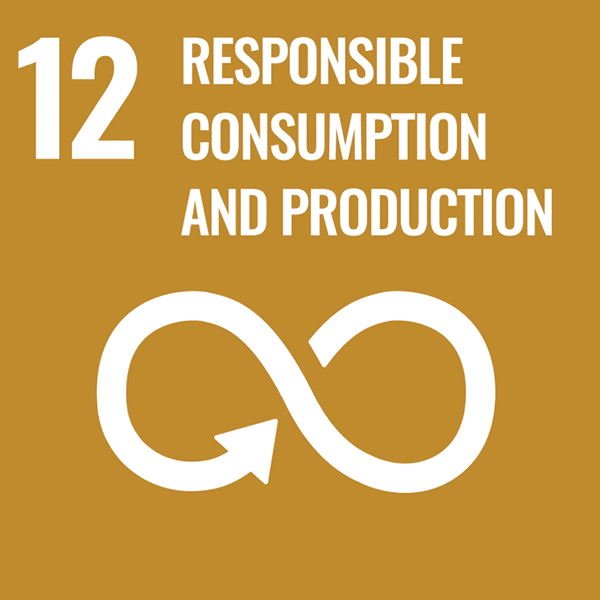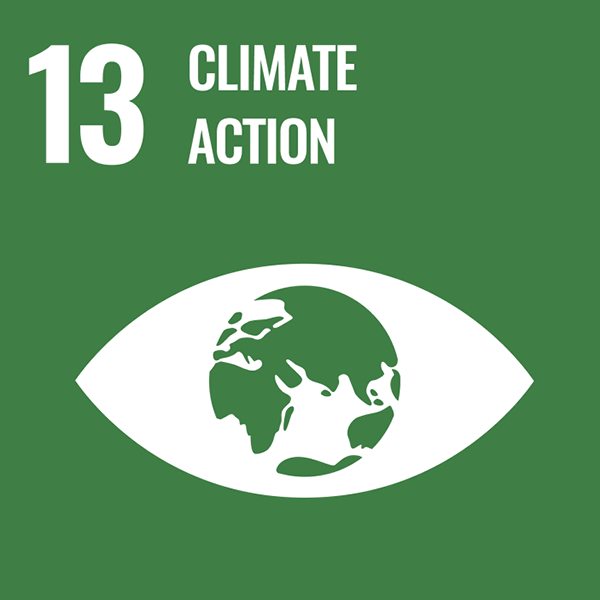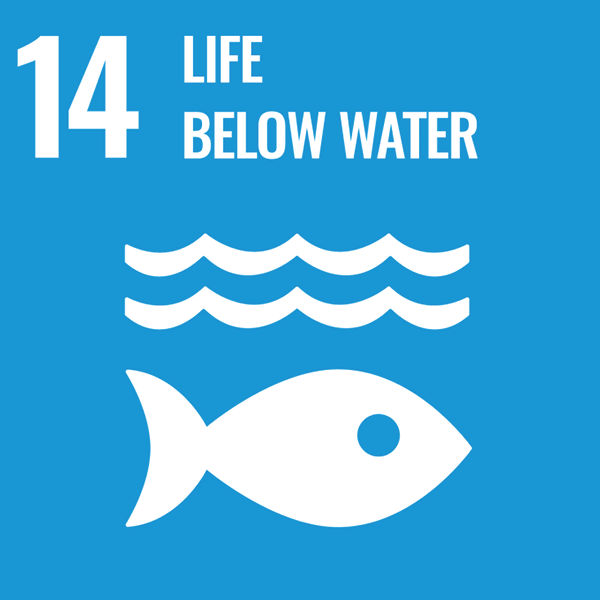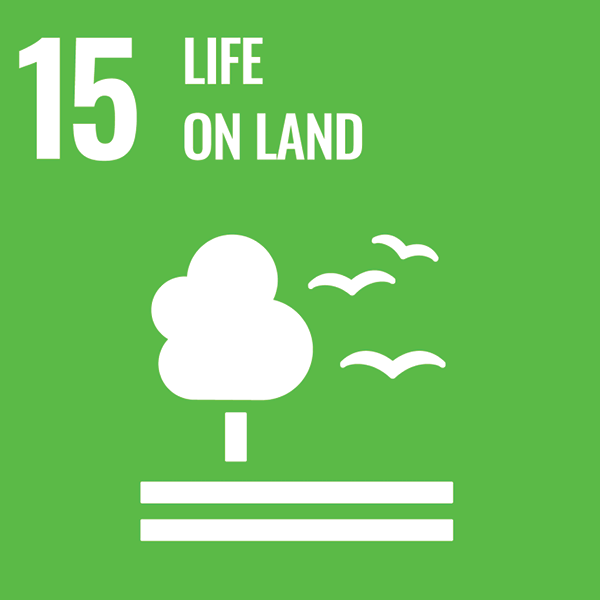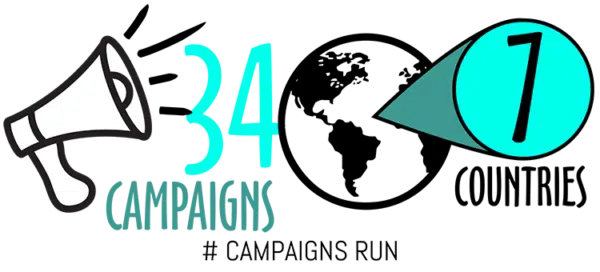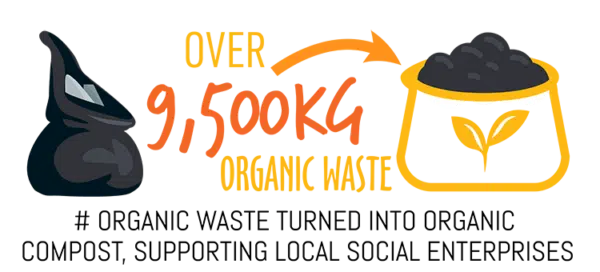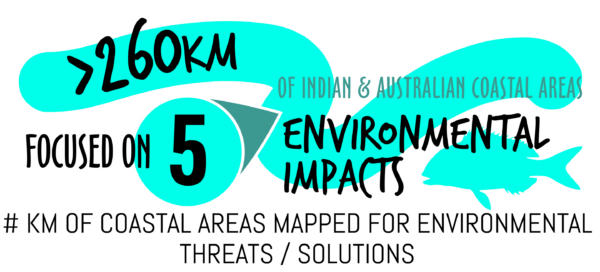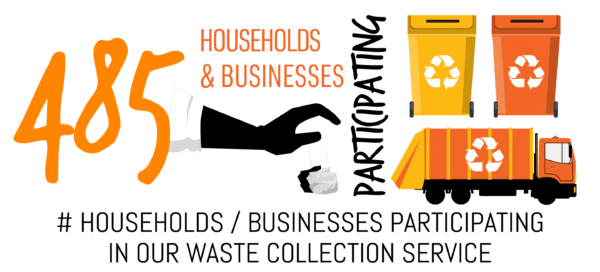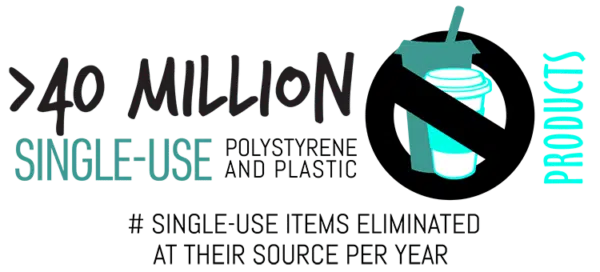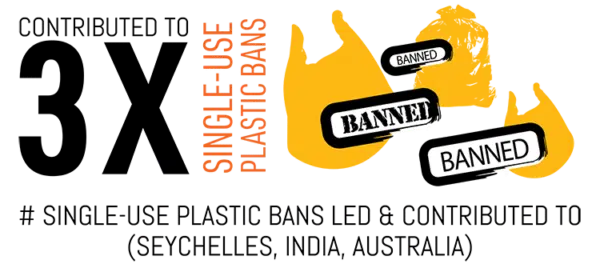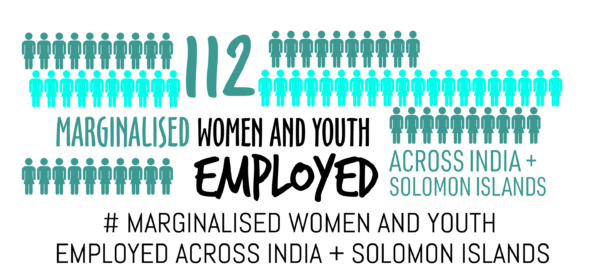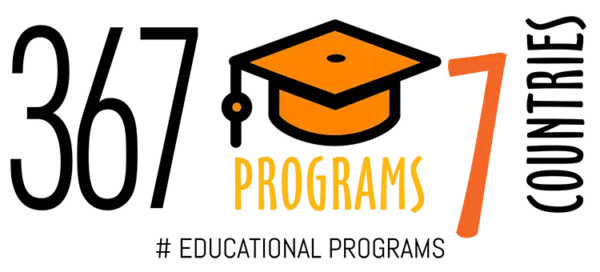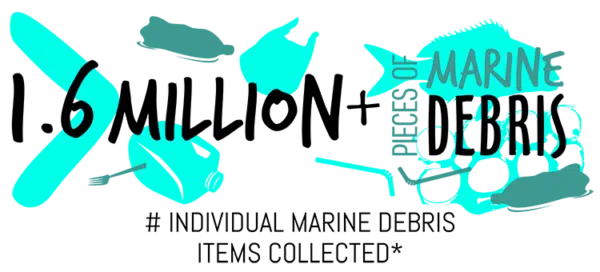MAXIMISING OUTCOMES THROUGH MONITORING & REPORTING
We pride ourselves on transparency and accountability throughout our Global Programs.
Underpinned by rigorous scientific data, our programs incorporate:
- GIS mapping, AI, video analyses, and community surveys.
- Biodiversity, carbon, and threat-related ground truthing.
- In-depth analyses, including program challenges, learnings, and successes to offer our supporters, funders and target communities the highest impact possible.
An experienced team of conservation scientists and anthropologists who pride themselves on collecting strong data ensures that we are effective in delivering the best possible conservation outcomes across our target regions, maximising your donation impact.
We Address 14 of 17 Sustainable Development Goals
Click on the SDGs below for an in-depth analysis
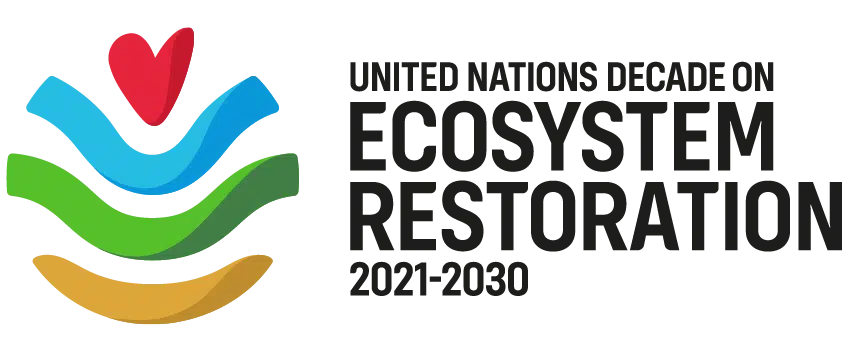
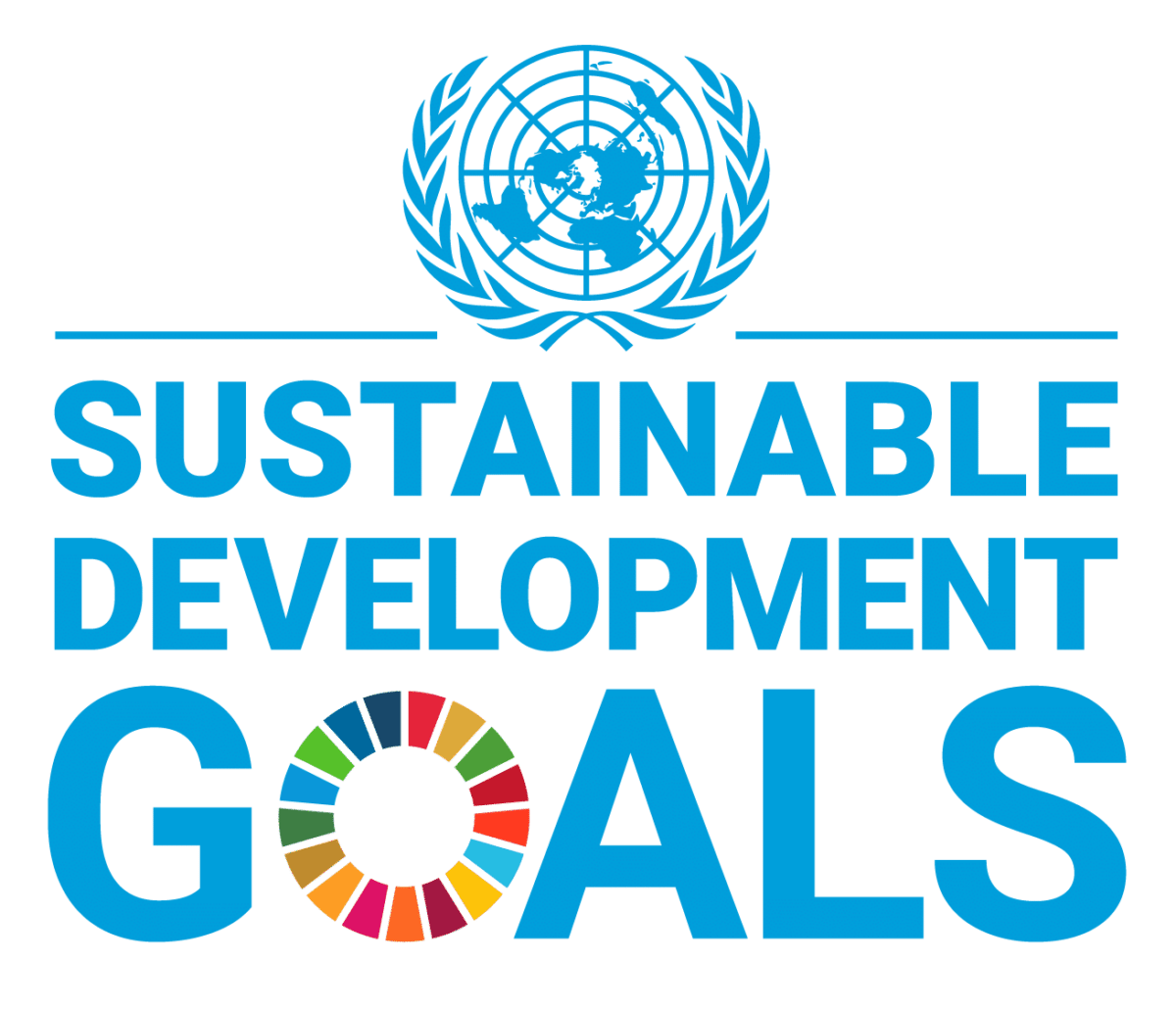
OUR ONGOING IMPACT
GOAL 1: NO POVERTY
Target 1.1 - Eradicate Extreme Poverty:
By offering sustainable employment opportunities to individuals who previously lived on less than US$5 a day in India and the Solomon Islands, we actively contribute to eradicating extreme poverty. Our programs also empower marginalised communities through alternative livelihoods, significantly improving their economic well-being.
Target 1.2 - Reduce Poverty by at Least 50%:
Our integrated approach offers viable alternative livelihood options across our waste, fisheries, and rewilding programs. Our holistic strategy aims to reduce poverty, aligning with Target 1.2, working towards a more equitable society. Reducing poverty and empowering marginalised groups leads to changing social dimensions. We have seen, first-hand, the bridging of social and cultural divides as a result of our programs. This is especially evident through the gender-divide being narrowed within our program locations.
Target 1.4 - Equal Rights to Ownership, Basic Services, Technology, and Economic Resources:
We are committed to ensuring equal rights for marginalised groups, especially those who are economically disadvantaged and vulnerable. Through access to dignified employment, training (including technology-related), and improved access to economic resources as a result, these groups gain the means to secure a more prosperous future. This inclusivity empowers marginalised women and youth in particular to have more control over household finances and thus, greater rights at the household/community level, aligning with Target 1.4.
Target 1.5 - Build Resilience to Environmental, Economic, and Social Disasters:
Through our efforts in waste management, rewilding, and sustainable fishing practices, we are significantly bolstering the resilience of vulnerable populations, especially small-scale fisheries (SSFs) communities. We do this through a range of resilience workshops and associated on-ground activities (including disaster risk reduction) within each of our three programs. This proactive approach minimises our target communities’ susceptibility to environmental. economic, and social disasters, aligning with Target 1.5's emphasis on enhancing resilience in the face of climate-related extreme weather events.
Target 1.A - Mobilisation of Resources to End Poverty:
Within all our programs, we proactively mobilise resources comprehensively, including financial support, technological advancements, and scientific expertise, from diverse sources. This effort aligns with Target 1.A's objective of significant resource mobilisation to end poverty. By strengthening development cooperation and facilitating strategic investments in poverty eradication through conservation and related services, we catalyse positive change and progress towards equity.
Target 1.B - Policy Frameworks for Poverty Eradication:
We represent marginalised communities and advocate for their views and recommendations, promoting the creation of sound policy frameworks at national, regional, and international levels. We do this through policy briefings to government, events, conferences, and submissions alongside our range of diverse global partners. These frameworks, based on pro-poor and gender-sensitive development strategies, align with Target 1.B, fostering an inclusive and equitable society.
GOAL 2: ZERO HUNGER
Target 2.1 - Universal Access to Safe, Nutritious, and Sufficient Food:
Aligned with Goal 2 (Zero Hunger), our efforts are dedicated to eradicating food insecurity and promoting sustainable food production in our target communities. Key initiatives include the transformation of organic waste into compost, improving soil quality, and boosting non-chemical vegetable farming productivity, ensuring year-round access to safe, nutritious food. We also work with small-scale fisheries’ (SSFs) communities to address food security challenges, pollutants and overall marine ecosystem health, ensuring access to cleaner, healthier, and more sustainable seafood.
Target 2.3 - Sustainable Agriculture and Income Generation:
Our waste-to-wealth programs empower marginalised women and youth with alternative livelihood opportunities, generating stable incomes through the sale of repurposed organic waste products and locally cultivated agricultural products (fruit and vegetables). Additionally, land rehabilitation initiatives provide access to resources, knowledge, and markets, fostering secure access to food and income, while our rewilding programs ensure climate resilience, ensuring safer, more equitable agriculture throughout our program locations.
Target 2.4 - Double the Productivity and Incomes of Small-Scale Food Producers:
We converge sustainable food production, resilient agricultural methods, and land rehabilitation, strengthening ecosystem health and enhancing adaptive capacity. These integrated strategies contribute to the resilience of food production systems, aligning with Target 2.4.
GOAL 3: GOOD HEALTH AND WELLBEING
Target 3.9 - Reduce Illnesses and Death from Hazardous Chemicals and Pollution:
In line with Sustainable Development Goal 3 (Health and Well-being), we focus on mitigating the impact of hazardous chemicals and pollution. Our teams across India, Australia and the Pacific actively work to reduce fatalities and illnesses linked to pollutants. Our comprehensive waste management programs significantly curtail solid, organic and air quality-related waste pollutants, bolstering community health by lowering disease risks and enhancing the health of air, water, and soil.
Moreover, through initiatives like blue forest rewilding, sewage waste mitigation, and invasive species control, we contribute to pollution reduction and climate adaptation efforts, aligned with Target 3.9’s pursuit to substantially decrease deaths and illnesses stemming from hazardous chemicals, air, water, and soil pollution by 2030.
GOAL 4: QUALITY EDUCATION
Target 4.4 - Increase The Number of People with Relevant Skills for Financial Success:
With over 110 marginalised women and youth (and counting) directly employed through our programs, as well as our comprehensive educational initiatives reaching tens of thousands of people per year, we integrate technical and vocational learning within all of our programs. This empowers our target communities to realise their potential, ensuring sustainable employment, access to fair workplaces, and entrepreneurship opportunities, especially through PCFML-facilitated micro-enterprises.
By providing training on efficient waste management, rewilding, citizen science, business and financial management, social enterprise development, as well as eco-tourism, we enhance skill sets, ensuring a more sustainable, equitable, and informed future.
Target 4.7 - Education for Sustainable Development and Global Citizenship:
Through our programs and community-driven initiatives, we ensure that community members, including marginalised fishers, women, youth, traditional custodians, as well as businesses and their employees acquire the knowledge and skills essential for promoting sustainable development. This encompasses sustainable industry, a free and informed society, and the importance of culture and local knowledge in achieving the SDGs. Our programs not only empower communities, but also create alternative livelihoods, thereby reducing anthropogenic pressure on nature.
Through staff and community-led workshops focused on ocean literacy; waste; low-impact business, marine, and terrestrial rewilding; carbon and biodiversity offsets; citizen science; storytelling, and more, we actively engage children, youth, and adults in becoming stewards of a new nature-based economy, shifting the dial to create closed-loop economies, based on conservation, instead of exploitation. The additionality of this approach is individual and collective purpose, an aspect of modern society that is often lacking and which, when invoked, develops truly responsible global citizens.
GOAL 5: GENDER EQUALITY
Target 5.1 - End Discrimination Against Women and Girls:
Our commitment to SDG Goal 5 is rooted in the mission to eradicate all forms of discrimination against women and girls, regardless of age, background, or circumstance. Through our programs, we empower a diverse group of more than 110 women, spanning generations from children to elderly women. Our ‘women empowering women’ approach aims to break the cycle of inequality, offering long-term employment opportunities that transcend traditional gender roles. This not only drives tangible environmental outcomes, but also results in personal growth and confidence through micro-business development, financial and accounting knowledge, as well as technical and technological literacy.
Additionally, we foster unity in diversity, transcending caste and religious barriers, that amplify women from small-scale fisheries (SSFs) communities’ voices on a global stage. By actively involving our women leaders in employment, decision-making processes, and providing platforms to share their stories we strive to eliminate gender-based discrimination in all its forms.
Target 5.2 - End All Violence Against and Exploitation of Women and Girls:
Social norms and trends within many of our target communities have traditionally been patriarchal, with women who are perceived to “step out of line” often the victims of physical, emotional and sexual violence. Through empowering women, educating men and highlighting the important role that equality can play for society as a whole, we are actively working towards an end to all violence against and exploitation of women and girls, with clear results already evident within our communities.
Target 5.4 - Value Unpaid Care and Promote Shared Domestic Responsibilities:
We recognize and value the unpaid care and domestic work performed by women within their households. Our programs advocate for, and incorporate the provision of public services, infrastructure, and social protection policies that alleviate the burden of unpaid work. They also promote shared responsibility within households and families, fostering a more equitable distribution of care and domestic duties, while ensuring that women have access to opportunities to support them financially. The resulting increase in confidence, purpose and social cohesion leads to greater social equality, and reduced gender-based discrimination.
Target 5.5 - Ensure Full Participation in Leadership and Decision-Making:
Our initiatives are dedicated to ensuring that women have the opportunity for full and effective participation at all levels of decision-making, be it political, financial, or within public life. We actively support and nurture their leadership potential, recognizing and harnessing their innate talents in diverse areas such as waste management and repurposing, fisheries data collection, blue forest planting, citizen science, project management, bookkeeping, micro-business development, marketing, and educational program facilitation. Through our programs, we not only empower women by enhancing their existing skillsets, but also train them to learn new skills that were previously unattainable.
Target 5.8 - Promote Empowerment of Women Through Technology
With women in the majority of our target communities facing enormous barriers to education and the associated use of technology, resulting in a lack of access to information, we ensure that technological training in a range of areas is embedded within our program models. Teaching various technology-based skills including how to use the internet, word processing and financial software, program management apps, as well as a range of data collection tools, we empower women to make informed choices. This ensures freedom to act independently, opening up social, economic and cultural opportunities, previously unfamiliar to many of them.
GOAL 6: CLEAN WATER AND SANITATION
Target 6.1 - Safe and Affordable Drinking Water:
Water is a vital component of our Waste to Wealth program, needed to clean and manage waste effectively. Given that many of our program locations lack access to safe drinking water, we are working with a number of partners to bring environmentally-friendly, low-impact desalination technology to our communities. This will not only support our program objectives, but also address SDG 6.1, ensuring universal access to safe drinking water throughout our communities.Target 6.2 - End Open Defecation and Provide Access to Safe Sanitation and Hygiene:
Through our Waste to Wealth programs we are working with a number of partners to address the pervasive issue of poorly managed human excreta. Currently, many of our program locations do not adequately manage their sewage, instead dumping it directly into waterways and the ocean, creating often untold impacts on both human communities and wildlife. Through providing managed facilities where excreta is safely disposed of in situ or treated off-site, basic hand washing facilities, as well as education around open defecation and access to sanitary facilities for women and girls, we are addressing this issue, ensuring a cleaner, safer environment for humans and wildlife alike.Target 6.3 - Improve Water Quality, Wastewater Treatment and Safe Reuse:
This Target is measured as the ratio of the volume of wastewater treated before being discharged into the environment to the volume of wastewater being generated through particular activities.Through our aforementioned sewage waste mitigation efforts, we monitor the pre, during and post-impact of those efforts in terms of the physical, chemical or biological processes that remove solids, microorganisms and pollutants from water, to render it fit to meet environmental standards or quality norms for recycling or reuse. As such, we contribute actively to Target 6.3, ensuring that government departments have access to, and can include, our data in their SDG Targets. In addition, we also aim to contribute water quality data on the health of waterways pre, during and post-programs to contribute to these Targets.Target 6.6 - Protect and Restore Water-Related Ecosystems:
Through our Rewilding our Floodplains (RoF) initiative, we protect and restore water-related ecosystems, including wetlands, rivers, and estuaries, by rewilding blue forests and reconnecting strategic wildlife corridors. Simultaneously, we combat erosion, poorly managed industry, plastic waste, and invasive plant species, further improving water quality and preserving biodiversity.Target 6.7 - Expand Water and Sanitation Support to Developing Countries:
We expand international cooperation and capacity-building support to developing countries in water- and sanitation-related activities and programs. This includes sharing our expertise in conservation science, waste management, catchment rehabilitation, reuse technologies, as well as micro-enterprises, assisting in the effective and sustainable management of water resources.Target 6.8 - Support Local Engagement in Water and Sanitation Management:
We support and strengthen the participation of local communities in improving water and sanitation management. Our community-driven approach empower our target communities to take ownership of their water resources, fostering sustainable practices and ensuring the well-being of local populations.GOAL 8: PROMOTE SUSTAINED, INCLUSIVE, AND SUSTAINABLE ECONOMIC GROWTH, FULL AND PRODUCTIVE EMPLOYMENT AND DECENT WORK FOR ALL
Target 8.1 - Sustainable Economic Growth:
Our Self Help Groups (SHGs) empower women to establish and grow micro-enterprises, contributing to sustainable economic growth within their communities. Through our Marine Conservation Centres (MCC), Waste Repurposing Facilities, and Ocean Innovation Hubs (OIH), we foster creativity and innovation, employing over 120 marginalised women and youth, leading to fair work and economic stability. This aligns with SDG 8’s commitment to promoting prosperity through grassroots entrepreneurship.
Target 8.2 - Diversify, Innovate and Upgrade for Economic Productivity:
Our initiatives actively promote economic productivity and innovation, providing a platform for new industries, skills development and grassroots entrepreneurship, particularly among marginalised women and youth. This approach fosters new and diverse labour markets with the potential to drive large-scale economic productivity through a conservation-focused approach.
Target 8.3 - Promote Policies to Support Job Creation and Growing Enterprises
Through myriad government partnerships at the local, state and national level, we deliver policy briefings to our government partners to ensure that there is broad support for job creation and enterprise growth in line with the SDGs and our conservation focussed economic approach. We see Waste, Fisheries, and Rewilding as core, global sectors either in need of development, or in need of proper mechanisms to ensure sustainability. Our programs provide this, while ensuring marginalised women and youth become the primary benefactors of our social enterprise and livelihoods approach.
Target 8.4 - Improve Resource Efficiency in Consumption and Production:
Our programs strive to improve resource efficiency in consumption and production. Through solid and organic waste repurposing, supply chain solutions, AI integration and scientific research as a basis for sustainable fisheries, as well as rewilding as an alternative income source to resource extraction, we decouple economic growth from environmental degradation, aligning with the principles of the 10-Year Framework of Programmes on Sustainable Consumption and Production. Developed countries lead these efforts through our collaborative, multinational partnerships.
Target 8.5 - Full Employment and Decent Work with Equal Pay:
We empower marginalised individuals, predominantly women and youth, to access full and decent employment. Our programs provide opportunities for ongoing, fair work and equal pay, ensuring that no one is left behind.
Target 8.6 - Promote Youth Employment, Education and Training:
Our initiatives increase the proportion of youth in employment, education, and/or training. We provide meaningful, long-term opportunities, while identifying and nurturing the unique skills of youth from marginalised coastal communities. Further, we work with our youth workers to overcome the many barriers that they may face in holding down Full-Time roles, including domestic challenges, as well as addiction. This nurtures them towards a career path, while also strongly aligning with The 2030 Agenda for Sustainable Development.
Target 8.7 - Eradicating Forced Labor and Child Labor:
We take immediate measures to eradicate forced labor and end child labor by encouraging parents to allow their children to attend school. Our programs, which directly engage many of these parents within our target communities, emphasise the importance of formal education and skill development, providing alternative livelihoods that reduce the economic pressure on families. This, alongside education on proper financial management, contributes to relieving the financial burden on families, enabling children to pursue a proper education.
Target 8.8 - Protect Labour Rights and Promote Safe Working Environments:
Poor and hazardous working conditions, a lack of insurance and formal contracts, unfair working hours and pay, as well as abuse and sometimes violence, are all issues that have been experienced by our communities within the regions in which we work. PCFML’s goal is to reverse this trend, through enabling our marginalised communities into meaningful, conservation focused education, training and employment, we empower them to realise their worth, ensure adequate working conditions, formal contracts, insurances, and/or ongoing support, while pushing government to recognise that adequate, formal labour rights and safe working environments are a vital aspect of their responsibilities, contributing to better economic, social, and environmental conditions. Overall, they are a better way to do business and a win-win for all involved.
Target 8.9 - Promote Beneficial and Sustainable Tourism:
We work towards engaging the tourism sector to do things differently within the regions that we work. With too many operators, poor or ecologically harmful practices, a lack of training, poor working conditions and pay, and dangerous equipment all too common, our programs aim to revitalise the tourism sector in order to mitigate these challenges. Through providing awareness, training, and employment, as well as revitalising other local sectors, we hope to ensure a more beneficial and sustainable tourism sector. Further, our range of global sustainable tourism partners enable us to showcase how beneficial, sustainable tourism can be a boon for profits, people, and planet, while driving the sale of the items that our communities produce, and enabling culture to thrive.
GOAL 9: BUILD RESILIENT INFRASTRUCTURE, PROMOTE INCLUSIVE AND SUSTAINABLE INDUSTRIALISATION AND FOSTER INNOVATION
Target 9.3 - Access to Financial Services:
As our programs continue to grow we are exploring mechanisms for better access for our target communities in accessing financial services. At present, within Small Scale Fisheries (SSF) communities, the ability to borrow (in many cases even have a bank account) is almost non-existent. As we empower communities to understand financial mechanisms, find their voice when it comes to representing the issues that they face, as well as become engaged in new, sustainable enterprises and livelihoods, we are building relationships with financial partners to ensure that affordable credit is available to support new value chains and markets that focus on conservation, instead of exploitation.
Target 9.4 - Upgrade All Industries and Infrastructures for Sustainability:
Through the development of new technologies to address waste, sewage, and water quality-related issues, as well as fisheries management, our work seeks to build, and/or improve infrastructure in order to achieve our conservation, human health, and livelihood goals. This includes actively contributing to building the infrastructure necessary for economic growth and sustainability in underserved regions.
Target 9.8 - Universal Access to Information and Communications Technology:
Our dedication to nurturing innovation relies on information and communications technology (ICT) as highlighted in Target 9.8. Our Ocean Innovation Hub (OIH) in India serves as a center for testing and nurturing novel ideas that improve waste and fisheries management, as well as the resilience of coastal ecosystems (including human settlements).
Our Australian-focused Rewilding our Floodplains work enables farmers, fishers, traditional custodians, businesses, scientists, decision-makers, and recreational users to actively engage in ICT, accessing, learning from, and sharing information with each other in order to protect and enhance their catchments - thereby improving their livelihoods, resources, lands, and communities.
GOAL 10: REDUCE INEQUALITY WITHIN AND AMONG COUNTRIES.
Target 10.1 - Reduce Income Inequalities:
Our programs plays a pivotal role in achieving and sustaining income growth, with a particular emphasis on some of the most vulnerable and marginalised. Through new income-generating opportunities (including micro-enterprises), training, as well as financial and ocean literacy, we contribute to income growth rates within our target communities which are higher than the national average, and serve the most marginalised (particularly women and youth).
Target 10.2 - Promote Universal Social, Economic, and Political Inclusion:
This target is at the core of our Global Programs. With a commitment to dismantling barriers, fostering resilience and reducing vulnerabilities, our programs specifically target marginalised women and youth in the small-scale fisheries (SSF) communities in which we work. Our Waste to Wealth program in particular has reflected how social and economic inclusion for these women and youth has shifted gender dynamics - improving women’s ability to participate, even lead, decision-making at the household level through to the political level within their Panchayat.
Further, the program’s adaptation to the Solomon Islands is producing similar results, with our rewilding and fisheries-related programs also focusing on the most marginalised to promote social, economic, and political inclusion, which research reflects is key to healthier communities, systems, and environments.
Target 10.3 - Ensure Equal Opportunities and End Discrimination:
Within many of our target communities discrimination and inequality continue to drive a range of issues that affect social, economic, political, and environmental progress. Through greater access to information, educational programs and workshops, training, as well as long-term employment opportunities focused on the most marginalised (with a particular emphasis on women and youth), our global programs ensure that we shift traditional thinking within our communities. The results of this approach are shared with regional, state and national governments with whom we work, with the aim of being reflected at a broader level within legislation. This ensures equal opportunities for all, while working to end discrimination in all of its forms. A win-win for all involved!
Target 10.4 - Adopt Fiscal and Social Policies that Promote Equality:
We pride ourselves on striving to continually improve our policies and procedures, ensuring that they inform and achieve our on-ground objectives. This includes mechanisms to achieve greater equality through policies that foster financial independence, such as fiscal, wage, and social protection policies within the PCFML workplace. Through greater numbers of marginalised community members being directly involved and employed through our programs, we shift the ‘norms’ within the broader community, with the aim of having a flow-on effect beyond community boundaries. This includes having an influence on employers and governments who set the standards when it comes to equitable fiscal and social policies.
Target 10.9 - Encourage Development Assistance and Investment in Least Developed Countries:
We actively encourage development assistance and financial flows, including foreign direct investment to marginalised communities that are most affected by climate change and biodiversity loss, and are at the forefront of their impacts. This includes bringing members of our communities to international forums, including UN conferences, to engage with decision-makers and funders on what their needs and wants are, including the administrative challenges that they face in addressing urgent environmental and social issues.
With enormous resources being put towards reversing biodiversity loss, as well as climate adaptation, we still see a misrepresentation of these communities, including the lack of appropriate mechanisms available to effectively access these resources. Our programs focus on addressing the unique challenges faced by these communities in an innovative way, bringing the funders and decision makers to them or vice versa, having face to face conversations and workshops around how least developed and island nations can truly benefit from strategic assistance and investment in the pressing challenges that they disproportionately face.
GOAL 11: MAKE CITIES AND HUMAN SETTLEMENTS INCLUSIVE, SAFE, RESILIENT AND SUSTAINABLE.
Target 11.3 - Inclusive and Sustainable Urbanisation:
The biggest challenges currently facing nature are all a part of nature, us. If we are to drive biodiversity and climate outcomes, then humans need to be at the centre of these solutions. Creating space for nature in cities through ‘greening’ and incorporating nature; ensuring social inclusion to reduce inequality, which drives crime; rewilding floodplains and foresting strategic corridors to ensure climate resilience and reduce ‘heat sink’ effects; and ensuring micro-enterprises focussed on sustainable industries like waste, upcycling, and fisheries, while improving value chains are all a part of the work that we do. Ensuring inclusive and sustainable urbanisation where nature and human settlements thrive, together - an holistic approach to Target 11.3.
Target 11.4 - Protect the World’s Natural and Cultural Heritage:
Our Rewilding our Floodplains and Fishing for Change initiatives directly contribute to the protection of natural heritage by restoring and conserving vital ecosystems. Through restoring riverine, estuarine and blue forest ecosystems, we ensure the enhancement and preservation of these critical natural habitats. Further, through recent exploration of how we can incorporate the revitalisation and protection of Underwater Cultural Heritage (UCH) into our programs, we’re excited to be actively delivering on Target 11.4.
Target 11.5 - Reduce the Adverse Effects of Natural Disasters:
Through our range of programs, we work to significantly reduce the impacts of natural disasters, especially flood-related disasters. By restoring coastal and floodplain habitats, promoting responsible waste management (including major clean-ups and source reduction projects), hosting climate adaptation workshops and implementing climate adaptation tools, especially for the most vulnerable, we enhance climate resilience and reduce vulnerability to disasters, protecting both people, as well as the ecosystems that they rely on.
Target 11.6 - Reduce the Environmental Impact of Cities:
Our waste management programs, including waste conversion into organic fertiliser and saleable products, as well as eco-friendly alternatives to single-use plastics, are designed to reduce the adverse per capita environmental impact of cities. Further, our urban rewilding programs also focus on reducing water, air and soil pollution, while additionally rewilding the blue heart of our planet, reversing climate impacts.
Target 11.7 - Provide Access to Safe and Inclusive Green and Public Spaces:
Our commitment to improving urban water quality, waste management, and ecosystem restoration directly supports the goal of providing universal access to safe, inclusive, and accessible green and public spaces. An example of this includes our India team turning informal landfill sites into thriving public sports fields and urban food forests, with many more projects such as this planned through our programs across the three countries in which we currently operate.
Through our community engagement and education efforts, we promote the use and preservation of these spaces, enhancing the well-being of urban residents, especially women and children who utilise these spaces most.
Target 11.9 - Implement Policies for Inclusion, Resource Efficiency and Disaster Risk Reduction:
We actively work to increase the number of cities and human settlements adopting and implementing integrated policies and plans that include disaster resilience. Our commitment to holistic disaster risk management aligns with Target 11.9, as we strive to create safer and more resilient urban environments and advocate for comprehensive disaster resilience planning both at the community, regional, state and national levels.
GOAL 12: ENSURE SUSTAINABLE CONSUMPTION AND PRODUCTION PATTERNS.
Target 12.2 - Sustainable Management and use of Natural Resources:
We promote sustainable management and use of natural resources through our Waste to Wealth program, developing closed-loop waste solutions, including waste reduction at source, upcycling of non-recyclable waste into new saleable products, conversion of organic waste (including meat and fish) into chemical-free fertilisers, as well as transforming waste sites into green spaces and urban food gardens.
Through our Rewilding our Floodplains program we ensure sustainable use through removing key threats to estuaries, rivers, and wetlands, enabling the right conditions for nature to regenerate. Further, through reemployment opportunities within our rewilding work, as well as exploring value chain improvements to enable less impactful tourism and business activities within these areas, we directly contribute to Target 12.2.
Our Fishing for Change program ensures that the power of sustainable resource use is placed back into the hands of those who rely on the ocean for survival. Through ecosystem mapping, data collection, monitoring, as well as community focused strategic plans which engage fishers in the work that we are undertaking (which employs marginalised women and youth to collect the data), we are building towards truly sustainable locally managed marine areas (LMMAs), which balance livelihoods with productive, thriving marine ecosystems.
Target 12.4 - Responsible Management of Chemicals and Waste:
Our commitment to recycling waste into environmentally friendly products aligns with achieving the environmentally sound management of chemicals and waste throughout its life cycle. By minimizing the release of harmful substances to air, water, and soil, we mitigate their adverse impacts on human health and the environment. This directly relates to our Waste to Wealth Program and its focus on sustainable waste management however, also includes the waste and pollution initiatives within our Rewilding our Floodplains and Fishing for Change programs.
Target 12.5 - Substantially Reduce Waste Generation:
Our Waste to Wealth Program focuses on substantially reducing waste generation through prevention at source; reduction through consumer knowledge and alternative supply-chains; recycling and upcycling what is already in circulation; as well as reusing through innovative, transformative product development, organic compost, and social enterprises built upon a decentralised waste model. By transforming waste into valuable resources, we actively contribute to Target 12.5, making it a central element of our Waste to Wealth approach.
Target 12.6 - Encourage Companies to Adopt Sustainable Practices and Sustainability Reporting:
We encourage companies, including large and transnational companies, to adopt sustainable practices and rigorous sustainability reporting both internally, as well as through supporting initiatives like our Global Programs. We are always on the lookout for values-aligned corporates who are motivated by sustainability and want to work with us to enhance their sustainability, especially in line with the SDGs. By integrating sustainability metrics into their reporting cycle, companies stay ahead of the game when it comes to transparency, accountability and ensuring their operations have a low, even neutral impact. With the Taskforce on Nature-related Financial Disclosures (TNFD) gaining traction, it's a great time for corporates to put their words into action and ensure that sustainability is a key component of their business model.
Target 12.7 - Promote Sustainable Public Procurement Practices:
We integrate Target 12.7 into our programs through ensuring that our communities, suppliers and corporate partners prioritise sustainable public procurement practices, which align with national policies and priorities within the countries that we work. This includes extensive research on supply chain partners, including packaging transition programs that we lead with business partners. Modern slavery policies, gender equity, environmental and social impact, are all explored through this process, with our efforts contributing to ensuring that public procurement supports sustainable consumption and production.
Target 12.8 - Promote Universal Understanding of Sustainable Lifestyles:
Through our awareness and education programs, we ensure that our communities, partners, supporters and the broader public with whom we engage both digitally and in-person have the relevant information available to understand the aspects of sustainable lifestyles that minimise harm. We actively foster sustainable and eco-friendly practices among communities, directly linking Target 12.8 to our educational initiatives, which are embedded into all of our programs.
Target 12.A - Develop and Implement Tools to Monitor Sustainable Tourism:
As our programs continue to grow, so too are the opportunities for sustainable tourism. Many of our programs work alongside nature-based tourism operators, many of whom are having an adverse impact on the natural areas that their business models rely on. Through our sustainable development initiatives, we are exploring new ways to reemploy these operators in conservation-focussed fields, while adapting existing tourism practices to ensure sustainability at every level. Through value chain improvements, support with marketing and awareness, local enforcement of harmful practices, as well as increasing national and international tourist visibility through nature beautification and rewilding, we are changing the narrative, ensuring a comprehensive suite of tools are available to not only enable sustainable tourism, but also monitor its impact over time.
GOAL 13: TAKE URGENT ACTION TO COMBAT CLIMATE CHANGE AND ITS IMPACTS.
Target 13.1 - Strengthen Resilience and Adaptive Capacity to Climate-Related Disasters:
Our Rewilding our Floodplains program, includes citizen science and on-ground action projects called “Rewilding for Climate Resilience”, which are a prime example of strengthening resilience and adaptive capacity through regenerating coastal buffers, particularly blue forests. Through reducing the impacts of fisheries on coastal ecosystems; rewilding mangrove forests, riparian areas, seagrass beds and strategic corridors; mitigating the climate impacts of waste, especially through dumping, burning, and landfills; as well as actively engaging our target communities in climate mitigation and adaptation workshops, including disaster risk management training, we are actively addressing Target 13.1, ensuring that we assist in protecting communities, especially some of the most vulnerable populations living in coastal regions.Target 13.2 - Integrate Climate Change Measures into Policies and Planning:
Through policy briefings to government, active engagement in our programs of our government partners, opportunities for lobbying efforts from within our target communities, as well as active participation in various international forums and platforms where global leaders and policymakers convene, we advocate on behalf of marginalised communities, to ensure that appropriate and representative climate change measures are incorporated into policies and planning.Target 13.3 - Build Knowledge and Capacity to Meet Climate Change:
All our programs are deeply rooted in training and skill development, ensuring the knowledge and capacity to meet climate change both within communities who are at the forefront of its impacts, as well as through government and funder engagement who can shift the dial through policy changes, as well as resourcing prioritisation.Further, we prioritize education and awareness campaigns that cater to all sectors and demographics. Through these initiatives, we empower individuals from diverse backgrounds and equip them with the knowledge and skills needed to adapt to climate change impacts and mitigate environmental degradation. Whether it's training coastal communities in sustainable fishing practices or educating urban populations on responsible waste management, our programs are shaping resilient communities, ensuring that our efforts contribute to Target 13.3.Target 13.5 - Promote Mechanisms to Raise Capacity for Planning and Management:
Across all our programs, we place a strong emphasis on capacity building for effective climate change planning and management. Inclusivity is a core principle of our approach. We provide comprehensive training and resources to women, youth, and local communities, especially in sectors like waste, tourism, and fisheries, which are at the forefront of climate impacts within SSF communities. By equipping these groups with the necessary skills and knowledge, we foster their participation in climate-resilient development, making our initiatives truly inclusive and impactful, aligned with Target 13.5.GOAL 14: CONSERVE AND SUSTAINABLY USE THE OCEANS, SEAS AND MARINE RESOURCES FOR SUSTAINABLE DEVELOPMENT.
Target 14.1 - Reduce Marine Pollution:
By actively preventing and significantly reducing various forms of marine pollution, particularly those stemming from land-based activities, including marine debris and nutrient pollution, we ensure healthier oceans. With >1.6 million individual pieces of debris collected and recorded through our projects, we wanted to develop systems to ensure that constant cleaning wasn’t the only way forward. Hence, our Waste to Wealth program was born!
Designed for the purpose of reducing marine pollution before it made its way to the ocean, the program plays a pivotal role in addressing plastic pollution at source through supply chain transitions; community and business Waste Collection Services, including training on segregation of five waste streams; organic waste to saleable compost solutions; coastal, community and underwater clean-ups; as well as driving policy makers to enforce and provide education and training to support harmful product bans, as well as to support new waste-focussed livelihood opportunities. To date, our Waste to Wealth program employs over 110 marginalised women and youth, has eliminated >40,000 pieces of plastic from entering supply chains every year, as well as converted vendors within our local communities to replace ~2.5 million single-use plastic items from their supply annually!
Target 14.2 - Protect and Restore Ecosystems:
Through our Rewilding our Floodplains and Fishing for Change initiatives, we actively contribute to sustainable marine and coastal ecosystem management. These programs are designed to avoid significant adverse impacts, enhance ecosystem resilience, and initiate rewilding efforts, strategically linking mountains to coastlines. By safeguarding critical habitats, promoting responsible fishing practices, and actively engaging coastal communities, we strive to achieve healthy and productive oceans, ensuring the long-term resilience of marine life and coastal populations.
Target 14.3 - Reduce Ocean Acidification:
Many are unaware that it’s not just CO2 that contributes to ocean acidification. Waste also plays a role through leaching toxic chemicals into the sea, especially in coastal areas where plastic debris is present in large quantities. Research suggests that the leaching of plastic marine debris could cause seawater pH decreases of up to 0.5 units!
While we actively engage in efforts to reduce ocean acidification through our programs, namely through our rewilding and sustainable fishing programs, we also mitigate its impacts through comprehensively addressing waste. Namely, reducing the impacts of burning toxic waste (contributing to emissions reductions), as well as addressing waste before it reaches the ocean through projects and approaches mentioned in Target 14.2. By combating climate change, reducing waste and associated pollutants, we contribute to reductions in ocean acidification. Ensuring the preservation of biodiversity and a healthier future for our one shared ocean.
Target 14.4 - Sustainable Fishing:
Our commitment extends to adequate research - monitoring,and educating SSF communities; as well as influencing sustainable catch limits and harvesting practices, including the elimination of unregulated and destructive fishing practices. Additionally, we are dedicated to the removal of plastic waste and ghost nets from the ocean, as well as locally-led solutions to ensure effective, adaptive locally managed marine areas (LMMA) within our target regions.
Through the implementation of multi-stakeholders science-based management plans, we aim to restore fish stocks to levels that can yield maximum sustainability in accordance with their biological characteristics, while protecting marine ecosystems, and thus the future of the fishing industry in the long-term.
Target 14.5 - Conserve Coastal and Marine Areas:
Our commitment to conserving coastal and marine areas aligns with the 30x30 goals, national and international laws, and the best available scientific knowledge. This target does come with a caveat though…
Can we REALLY protect 30% by 2030, or is this target unrealistic? One of our focus regions in the Solomon Islands is a prime example of how this target is most likely untenable, with less than 0.5% of their enormous marine estate (>1.6 million km2)currently protected). Existing within the incredibly diverse Coral Triangle region, yet with a lack of resources and support to achieve the ambitious goal of 30% protection by 2030, this target seems wildly ambitious. We put forward the question; are multi-faceted, community ingrained LMMA approaches a better solution to truly conserve coastal and marine areas than an arbitrary number?
We think so.
Our ambition to address Target 14.5 is to focus on the establishment, improvement, and ongoing success of effective MPAs and LMMAs within our target regions, developing mechanisms for sustainable fishing practices, community-led no-take zones and catch moratoriums, as well as ongoing community engagement, all underpinned by rigorous scientific research, with evidence to support decision-making processes. By fostering a sense of responsibility among coastal communities and conducting ongoing research and monitoring, we ensure the longevity and vitality of these ecosystems for future generations, while ensuring that the potential for ‘paper parks’, which exacerbate sustainability and social challenges elsewhere, are mitigated. Further, our Rewilding our Floodplains program rewilds coastal and marine ecosystems, including blue forests, and riparian areas, while exploring cost-effective, high conservation value corridors to reconnect habitat between developed lands and existing protected areas.
Target 14.6 - End Subsidies Contributing to Overfishing:
While this approach is relatively new for us at PCFML, our Fishing for Change program aims to develop partnerships with champions from regional, state and national governments to enable an end to the subsidies that contribute to overfishing. Through our SSF approach, we aim to build the case for effective resource management - including supply chain enhancements, alternative livelihoods, as well as eco-tourism, in order to promote more effective and sustainable financial mechanisms, which appeal more to government at all levels than the continuation of industry-focused, unsustainable subsidies.
Target 14.7 - Economic Benefits for Vulnerable Regions:
We are dedicated to increasing economic benefits for small island developing states and regions vulnerable to environmental challenges through sustainable marine resource management, including fisheries and tourism. Our initiatives foster inclusive and sustainable economic growth, driven by our waste management programs, which create alternative livelihoods and enhance the well-being of local communities. Additionally, we actively promote and foster sustainable fisheries practices to further contribute to the economic prosperity of these regions.
Target 14.7 - Increase the Economic Benefits from Sustainable Use of Marine Resources:
All of our programs are underpinned by market-based solutions to marine conservation challenges. We see new, sustainable, conservation-focused industries as the solution to the many challenges that face ocean ecosystems, as well as the communities who rely on the ocean for survival. Through developing innovative Waste to Wealth livelihoods (currently employing >110 marginalised women and youth), utilising Nature-based Solutions (NbS) to fund rewilding employment and enforcement officers for coastal protection and fisheries management, as well as driving ecotourism through restoring, protecting and conserving marine ecosystems (including protecting natural and cultural heritage), we see a bright future for our one, shared ocean. A future where the economic benefits of ocean conservation far outweigh its continued exploitation.
Target 14.8 - Increase Scientific Knowledge, Research and Technology for Ocean Health:
All of our programs are underpinned by scientific knowledge and research. Ensuring rigorous pre, during, and post-monitoring of our program impact, engaging key stakeholders and community members in citizen science programs, while utilising state-of-the-art AI, GIS mapping, drone, and imagery-based technologies to drive our work, we ensure that we are addressing Target 14.8. Further, through working directly with industry, we drive real-world solutions to unsustainable waste, fisheries and coastal infrastructure, ensuring adherence to the Intergovernmental Oceanographic Commission Criteria and Guidelines on the Transfer of Marine Technology, further informing government and industry best practice.
Target 14.9 - Support Small Scale Fishers:
Our commitment to Target 14.9 involves empowering small-scale fisheries (SSF) communities by providing them with the tools needed to ensure sustainable fishing practices, better livelihoods, and training through our various programs. This includes scientific monitoring and reporting projects both at sea and portside; development of alternative livelihoods through our Plastic Catch, ecotourism, and Waste to Wealth-related projects; ongoing training, community outreach, and multi-stakeholder workshops; government engagement and lobbying for better outcomes to protect SSFs livelihoods (including involvement of our communities in international conferences and events); as well as value chain analyses and opportunities to drive better financial outcomes, while reducing overfishing.
GOAL 15: PROTECT, RESTORE AND PROMOTE SUSTAINABLE USE OF TERRESTRIAL ECOSYSTEMS, SUSTAINABLY MANAGE FORESTS, COMBAT DESERTIFICATION, AND HALT AND REVERSE LAND DEGRADATION AND HALT BIODIVERSITY LOSS.
Target 15.1 - Conserve and Restore Terrestrial and Freshwater Ecosystems:
Through our Rewilding the Floodplains and Fishing for Change programs, we align with Target 15.1 by actively working to ensure the conservation, restoration, and sustainable use of forests and freshwater ecosystems, while halting and reversing land degradation and biodiversity loss. Through multi-stakeholder involvement which highlights the long-term social, economic, cultural, as well as environmental impact of protecting these ecosystems, we deliver real-world rewilding, fisheries management, and livelihood solutions, with the goal of increasing habitat by at least 50% within our target regions, from pre-program levels.
Target 15.2 - End Deforestation and Restore Degraded Forests:
Through the Rewilding Our Floodplains initiative, we aim to rewild blue forests (particularly mangroves, saltmarsh and seagrasses), while regenerating adequate and strategic riparian vegetation and wildife corridors - linking the source to the sea. Through closely working with farmers, fishers, landowners, industry, government, scientists, as well as local communities, we ensure responsible land management, protecting and rejuvenating forest ecosystems, to foster a healthier planet where humans thrive as a part of nature, rather than separate from it.
Target 15.5 - Protect Biodiversity and Natural Habitats:
Biodiversity and habitat protection are a key focus of all of our programs. Waste, habitat destruction, and overfishing all play a role in biodiversity loss. In fact, we see these three areas as interlinked…
How can marine ecosystems thrive if they are constantly inundated with waste and pollution? How can we ensure climate resilience if we continue to fragment and destroy our blue and terrestrial forests? How can we protect our communities and the vital role that our ocean plays in regulating climate, producing food, and ensuring a safe planet for humans to thrive in, if we continue to pillage it with no mechanisms in place for adequate revitalisation?
Protecting biodiversity and natural habitats is key. At PCFML, we provide a multi-faceted, multi-stakeholder approach to do just that. Empowering communities at the forefront of climate change and biodiversity loss, including industry and recreational users as champions for positive change; enabling new, conservation-focused livelihoods as an alternative to ecosystem-damaging employment; as well as creating innovative closed-loop solutions to waste, while enabling existing fisheries to thrive through strategic management, monitoring, and value-chain improvements.
Target 15.7 - Eliminate Poaching and Trafficking of Protected Species:
Our Fishing for Change program engaged both SSF and commercial fishers to eliminate poaching of protected species, in line with CITES regulations. Through engaging these stakeholders in the importance of these species, particularly elasmobranchs, we drive a greater understanding of the importance that they play in regulating the ecosystem, contributing to the long-term livelihoods of the fishers themselves.
Through alternative livelihoods in education, waste management, conservation project management, as well as ecotourism, we also enable a marked reduction in poaching and trafficking of these species, through conservation-focused livelihoods that protect, rather than exploit.
Target 15.8 - Prevent Alien Invasive Species on Land and in Water Ecosystems:
We actively introduce strategies to map, monitor, and eradicate alien invasive species within our target regions. Through strategic rewilding efforts, removing and replacing invasive species with native species; eliminating nutrient and pollution sources that allow invasives to thrive; as well as through education to our communities in order to stop the spread of these species, we actively contribute to Target 15.8, ensuring more resilient, natural systems that reduce the enormous economic, social, and environmental burden of alien invasive species.
Target 15.9 - Integrate Ecosystem and Biodiversity in Governmental Planning:
Through working closely with our regional, state, and national government partners to integrate ecosystem and biodiversity values into planning and development processes, poverty reduction strategies and accounts, we contribute to economic and human well-being outcomes, striving to create a more harmonious and sustainable future.
Target 15.A - Increase Financial Resources to Conserve and Sustainably Use Ecosystem and Biodiversity:
We actively mobilize financial resources from a range of sources to conserve and sustainably use biodiversity and ecosystems, aligning with TargetTarget 15.A. This includes securing funding for our conservation efforts both nationally and globally, developing financial partnerships to expand our shared outcomes, as well as prioritising government targets to leverage these funds.
Our global programs need your support, help us make positive change for people and planet.
All donations are tax deductible!
